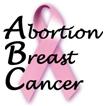Why haven't women been told?
Women's Group Tells Press: Ask Anti-Cancer Groups Hard Questions
May 9th, 2002
The head of an international women’s group today encouraged members of the media to ask the anti-cancer organizations some hard questions addressing their failure to alert American women that scientists had been exploring a link between abortion and breast cancer since 1957. 1
Karen Malec, president of the Coalition on Abortion/Breast Cancer, said, “This is the time of year when anti-cancer groups are sponsoring cancer walks to raise funds for further research into the causes of breast cancer. Shouldn’t they be asked some hard questions about their decision to keep women in the dark about the abortion-breast cancer research? We suggest the following questions:
- “First, why haven’t women been told about the existence of 28 out of 37 studies published since 1957 which have linked abortion, an elective procedure, with breast cancer? 2
- “Second, how would acknowledgment of the evidence impact the fundraising abilities of the anti-cancer groups and their relationships with abortion supporters in Congress, with physicians at risk for malpractice lawsuits and with the wealthiest members of American society who’ve given outrageous sums of money to Planned Parenthood?
- “Third, why aren’t women being informed of the biological evidence already acknowledged by scientists? They confirm that: 1) Estrogen promotes the growth of tumors; 2) Estrogen overexposure is associated with most of the recognized risk factors for the disease; 3) By the end of the first trimester, a pregnant woman’s estrogen level surges 2000%; 4) Spontaneous miscarriages usually produce insufficient amounts of estrogen, and breast cancer risk does not usually increase as a result; and 5) Scientists demonstrated that they could induce breast cancers in rats who’d been aborted, but not in rats who’d had full term pregnancies, by exposing each group to a carcinogen. 3
- “Fourth, why aren’t women told that no scientist challenges the biological explanation for the abortion-breast cancer link?
- “Fifth, isn’t it true that the earlier a woman has a first full term pregnancy, the lower her risk for breast cancer is? Isn’t childlessness a risk factor for the disease? Doesn’t a full term pregnancy confer increased protection against the disease? Doesn’t breast feeding reduce risk? How is it, then, that abortion doesn’t cause breast cancer in this way?
- “Sixth, why did a researcher working for the American Cancer Society (ACS) in 1997, Phyllis Wingo, flip flop on her assessment of abortion as a risk factor for this disease? While employed for the Centers for Disease Control in 1986 (and where she is presently employed), she co-authored a letter to the Lancet with an epidemiologist from the National Institutes of Health and two other epidemiologists and said, ‘Induced abortion before first term pregnancy increases the risk of breast cancer,’ although there were only two published American studies reporting increased risk. 4 5 Yet in 1997, when she conducted a review of the research for the ACS, she said that the data were ‘inconsistent’ and she could not reach ‘definitive conclusions.’ Her own data, however, revealed increased risk, and 10 more studies had been published. 6 Altogether, 12 American studies had been published by that year, 11 of which reported increased risk. There were far more data implicating abortion as a risk factor in 1997 than there were in 1986 when she wrote her letter to the Lancet.
- “Seventh, why do the anti-cancer groups rely on the 1997 Melbye study to dismiss the findings in 28 studies reporting increased risk, although 1) Melbye has been severely criticized for its errors; 2) Its researchers started counting the incidence of the disease -- recorded during a 5 year period -- before counting abortions, the cause of the disease; 3) Melbye misclassified 60,000 women who'd had abortions as not having had abortions; 4) Even Melbye reported that for each week of gestation a 3 percent increased risk was found, so that after the 18th week there was a statistically significant 89% increased risk for women choosing an abortion. 7
- “Eighth, why do these groups use recall bias theory to suggest that the findings in 27 interview based studies should be dismissed altogether, although several teams of scientists have tested for recall bias, and no team currently claims to have found any credible evidence of it?
- “Ninth, if a prospective study, as opposed to an interview based study, is the ‘gold standard’ in epidemiological research, then why aren’t women being informed of the findings reported in the 1989 Howe study which was entirely based on the use of medical records (instead of interviews) for its data and which found a 90% increased risk for New York state women? 8
- “Tenth, why didn't these groups blow the whistle on the NCI when it reported on its web page in 1998 that only animal studies provided a ‘scientific rationale’ for the abortion-breast cancer link, although the NCI had paid (at least in part) for most of the 12 American studies which had been conducted by then, 11 of which reported increased risk?
- “Eleventh, does it trouble the officials at the anti-cancer groups that the recently revised NCI web page includes more lies? For instance, the agency falsely said Tang et al. 2000 found evidence of recall bias. In fact, Tang’s abstract says, ‘The authors’ data do not suggest that controls are more reluctant to report a history of induced abortion than are women with breast cancer.’ 9 Nevertheless, the NCI uses this falsehood to justify trashing the evidence reported in 27 interview based studies.
- “Twelfth, does it trouble these officials that the only study specifically commissioned by the NCI which reported a statistically significant 50% increased risk was not only tarnished by an editorial published in the Journal of the National Cancer Institute, but was omitted from the NCI’s web page discussing this research, along with 31 other studies exploring the link? 10
- “Thirteenth, an article published by Lancet Oncology concluded that ‘For future epidemiological studies in breast cancer, more work is needed in specific areas where a stronger association might exist, such as in late second-trimester abortions, in very young patients, and in families with a genetic predisposition....’ 11 What steps are being taken to inform women that scientists suspect that these may be high risk groups?
- “Fourteenth, why don’t anti-cancer groups want educational brochures about the link distributed at their cancer walks?
- “Fifteenth, one day women and their orphaned children will demand an accounting from the press, women’s groups, scientists, medical societies, legislators and anti-cancer organizations. The last group will be asked this hard question, ‘Do you really care about women’s health, or are you only interested in fundraising and perpetuating your organizations?’”
The Coalition on Abortion/Breast Cancer is an international women’s organization founded to protect the health and save the lives of women by educating and providing information on abortion as a risk factor for breast cancer.
- 1. Segi et al. (1957) GANN 48 Suppl.): 1-63; Watanabe & Hirayama (1968) Nippon Rinsho 26:1853-9; Pike et al. (1981) Br J Cancer 43:72-6.
- 2. Reference www.AbortionBreastCancer.com
- 3. Russo J, Russo IH, Am J Pathol. 1980; 100:497-512.
- 4. Feb. 22, 1986.
- 5. Id; Brinton et al. (1983) Br J Cancer 47:757-62.
- 6. Wingo et al (1997) Cancer Causes Control 8:93-108.
- 7. Melbye et al. (1997) N Engl J Med 336:81-5.
- 8. Howe et al. (1989) Int J Epidemiol 18:300-4.
- 9. Tang et al. (2000) Epidemiology 11:177-180.
- 10. Daling et al (1994) JNCI 86:1584-92.
- 11. Tim Davidson, M.D., Lancet Oncology (December, 2001) Vol. 2, p. 756-58.

